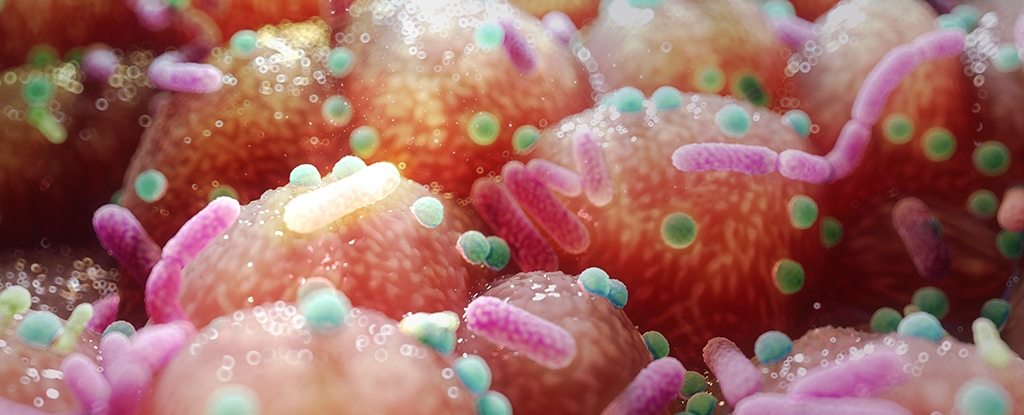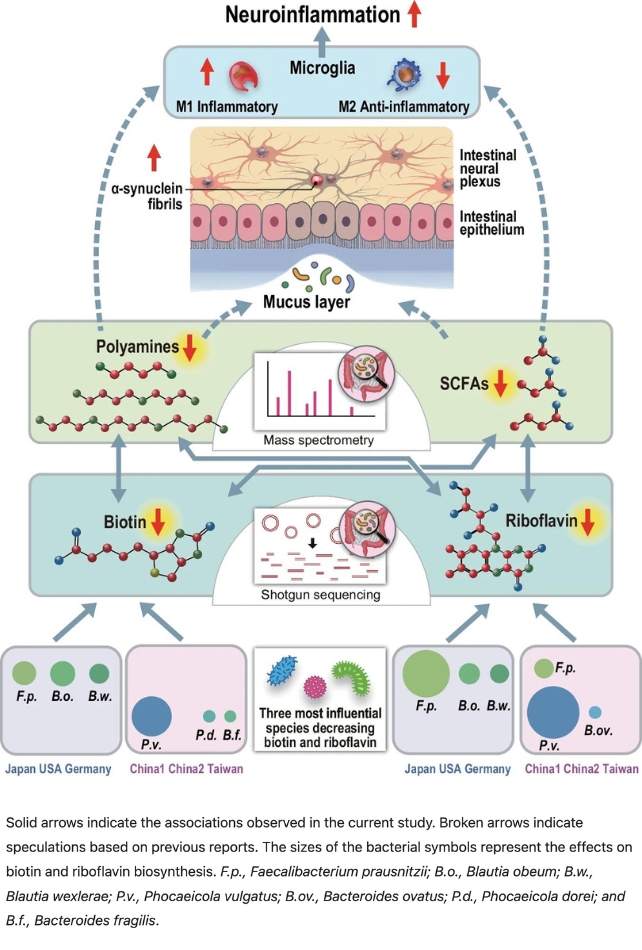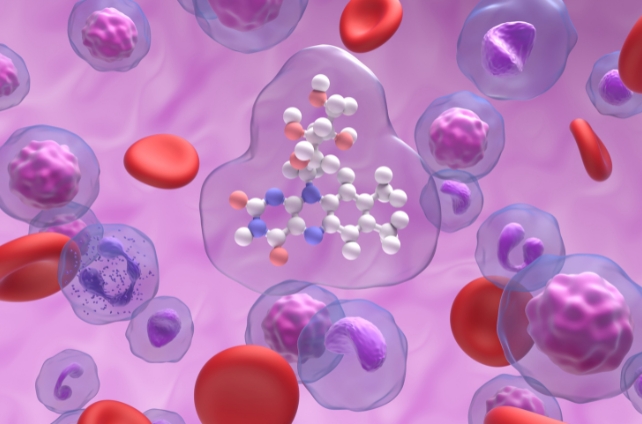
Parkinson's Link to Gut Bacteria Suggests Unexpected, Simple Treatment
Researchers have suspected for some time that the link between our gut and brain plays a role in the development of Parkinson's disease.
HEALTH26 June 2024
ByTESSA KOUMOUNDOUROS

Illustration of bacteria on the colon epithelium. (Nanoclustering/Science Photo Library/Getty Images)
Researchers have suspected for some time that the link between our gut and brain plays a role in the development of Parkinson's disease.
A new study just identified gut microbes likely to be involved and linked them with decreased riboflavin ( vitamin B2) and biotin (vitamin B7), pointing the way to an unexpectedly simple treatment that may help: B vitamins.
"Supplementation of riboflavin and/or biotin is likely to be beneficial in a subset of Parkinson's disease patients, in which gut dysbiosis plays pivotal roles," Nagoya University medical researcher Hiroshi Nishiwaki and colleagues write in their published paper.
The neurodegenerative disease impacts almost 10 million people globally, who at best can hope for therapies that slow and alleviate symptoms.
Symptoms typically begin with constipation and sleep problems, up to 20 years before progressing into dementia and the debilitating loss of muscle control.

Previous research found people with Parkinson's disease also experience changes in their microbiome long before other signs appear.
Analyzing fecal samples from 94 patients with Parkinson's disease and 73 relatively healthy controls in Japan, Nishiwaki and team compared their results with data from China, Taiwan, Germany, and the US.
While different groups of bacteria were involved in the different countries examined, they all influenced pathways that synthesize B vitamins in the body. The researchers found the changes in gut bacteria communities were associated with a decrease in riboflavin and biotin in people with Parkinson's disease.
Nishiwaki and colleagues then showed the lack of B vitamins was linked to a decrease in short-chain fatty acids (SCFAs) and polyamines: molecules that help create a healthy mucus layer in the intestines.
"Deficiencies in polyamines and SCFAs could lead to thinning of the intestinal mucus layer, increasing intestinal permeability, both of which have been observed in Parkinson's disease," Nishiwaki explains.

Summary of findings from the study and speculations from previous research. (Nishiwaki et al., npj Parkinson's Disease, 2024)
They suspect the weakened protective layer exposes the intestinal nervous system to more of the toxins we now encounter more regularly. These include cleaning chemicals, pesticides, and herbicides.



